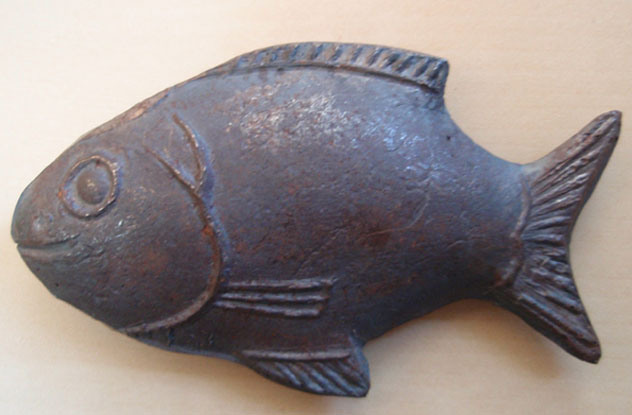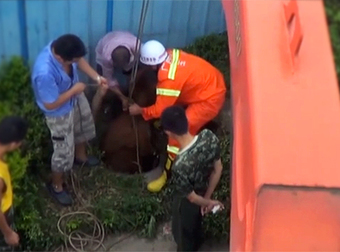You might think you know everything about your health but, trust me, you don’t. From shockingly simple inventions to super easy directions, these 10 simple ideas have saved millions of lives. Don’t you think you should learn about them too? 🙂
1. Finland’s infant mortality rate spiked in the early 1940’s. To tackle the problem, the government started giving all expectant mothers a box containing a selection of useful items. These included clothes, bedding, grooming products, and other newborn essentials. It worked wonders.
2. Inside Japan there is a suicide spot so infamous that it has a name: Aokigahara. A popular place for people with debts to die, a simple sign with a phone number to call someone willing to listen saved 29 people in its first year alone.
3. To combat iron deficiency, Cambodian officials gave an iron fish (considered sacred) to resident to put in their pots while they cooked, tricking them to have the iron seep into their diet. It worked!
4. Every year, 7,000 people die due to hospital medication errors. One study found that 61 percent of medication errors result from poor handwriting. To fix this, Australia gave incentives to doctors to type out prescriptions. The result? The 37 percent error rate for handwritten prescriptions drops to 7 percent.
5. Every year dirty syringes kill 1.3 million people. Inventor Mark Koska’s solution was the K1 Auto Disable Syringe. It can be used only once—once the plunger goes down, it locks and can’t be drawn back. And it costs the same to manufacture as a standard syringe. Worldwide annually healthcare savings? $100 billion.
6. Tetris seems to protect against PTSD and flashbacks. Researchers showed experiment participants a disturbing film. During the next six hours, some answered trivia, some played Tetris, and others did nothing much at all. Over the following week, people who’d played the 1980’s classic had far fewer flashbacks.
7. A pilot study in Ohio found that text reminders increased treatment adherence among adolescents. In fact, after three months, patients who received frequent texts were three times less likely to forget to take their medication.
8. In order to prevent people from overdosing, the UK created smaller pill bottles. The largest packet you’ll find in a supermarket holds 16 pills. A study found that in the first 11 years after the change, an estimated 765 lives were saved.
9. Colonoscopies are a life saving pain in the butt, but most people hate coming back for the second procedure because it was too uncomfortable. Researchers came up with an idea to leave the camera inserted for a few minutes longer at the end. The camera resting in the bowel once is a much less uncomfortable experience than when it moved around inside.
10. Doctors are prone to the same carelessness and forgetfulness that everyone is. One effective way to overcome human error is to use simple lists (like this one!). To do this, the WHO created a 19-point checklist for use in all surgeries. Some of the steps are surprisingly simple, including every team member introducing themselves at the start of a surgery. Yet it’s been tried in dozens of countries, and it reduced complications by one-third.
(via: Listverse)
If you learned even one thing that will help your life, please considering sharing that knowledge with your friends below.









